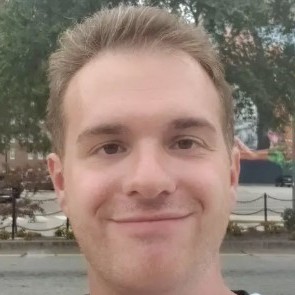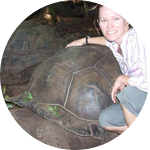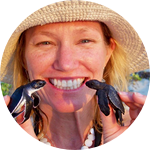About This Project
Corals reefs are a major cornerstone of marine life and the economy. They are declining rapidly and scientists are scrambling to keep up with solutions. Our team seeks funding to continue monitoring coral density, biodiversity, and structure in the Bay of Banderas, Mexico four times a year. We follow the protocol used by the University of Guadalajara, but receive no financial support. More locals could be involved if we could help pay for boat rentals and equipment.
Ask the Scientists
Join The DiscussionWhat is the context of this research?
Coral reefs are critical to ocean health and the economy. The research question is "How does climate change and human pressure impact Eastern Pacific corals?" The team aims to answer this by documenting coral health, species diversity surveys, and assessing reef structure over time following an established protocol. This research project informs management practices by providing data to Mexican government agencies. Due to government funding cuts, many of the sites are being left out of the census and significant data gaps result. Therefore, the Marine Ecology lab at the University of Guadalajara has asked skilled volunteer divers to do the same surveys and commit to monitoring at their own cost.
What is the significance of this project?
Eastern Pacific corals are in decline and are critically important to study because they are hardy species that evolved to withstand unstable habitat regimes such as fluctuating temperatures from El Nino/La Nina Oscillations (ENSO), violent storms, and low light levels and salinity. Through targeted research on these corals, we can provide data-driven recommendations to managers locally and globally on best practices for corals in the face of climate change and other anthropogenic threats. In addition, protecting and restoring corals will boost the economy - fishing and tourism are the main occupations in this region. We aim to invite more local people to the team to diversify expertise and create longevity in the project.
What are the goals of the project?
We want to start again in April 2023. At all 40 monitoring sites, the teams use the same field methods during the daytime (0900 to 1300 or 1500 to 1700). The fish diver swims the 25 m-long transect recording fish size, species, and life stage. The video diver follows with a GoPro camera 40 cm above the substrate. The echinoderm diver records species and counts of urchins, sea stars, and cucumbers. The rugosity diver places a 10 m chain along the transect and notes the beginning and end points. The Lab determines coral density, species, and health. They determine if the reef is healthy based on the diversity and assemblage of fish and echinoderms, and a high rugosity.
Budget
This project is ongoing and asks citizen scientists to participate. We want to provide the opportunity to qualified locals in the study area who may not be about to afford the costs of diving on a regular basis. We need quarterly data and there are four divers to a team.
Endorsed by
 Project Timeline
Project Timeline
We aim to do four transects a year at our site covering the dry season, transition to wet season, wet season, and transition to dry season.
Apr 01, 2023
Purchase of equipment
Apr 17, 2023
Project Launched
Apr 22, 2023
dry season monitoring
Jul 22, 2023
transition season monitoring
Sep 02, 2023
wet season monitoring
Meet the Team
Team Bio
Our team consists of Science Exchange Director Katherine Comer Santos, and Dive Instructors Karla De La Pena and Yadira Navarro. We have gone through the Marine Ecology lab at the University of Guadalajara Coastal Campus training course and field practice. The project is supervised by Dr. Paola Rodríguez-Troncoso and Dr. Amílcar Cupul-Magaña.
Katherine Comer Santos
With a masters degree in Geography, Katherine is an Adjunct Research Associate at San Diego State University Biology Department. She lives in Jalisco, Mexico working as The Science Exchange Sea Turtle Internships Program Director. She, her interns, and many collaborators study beach pollution, water contamination, climate change impacts on sea turtle nesting beaches, corals, fish assemblages, and other marine biology topics.
Additional Information
Project Backers
- 5Backers
- 100%Funded
- $4,740Total Donations
- $948.00Average Donation


